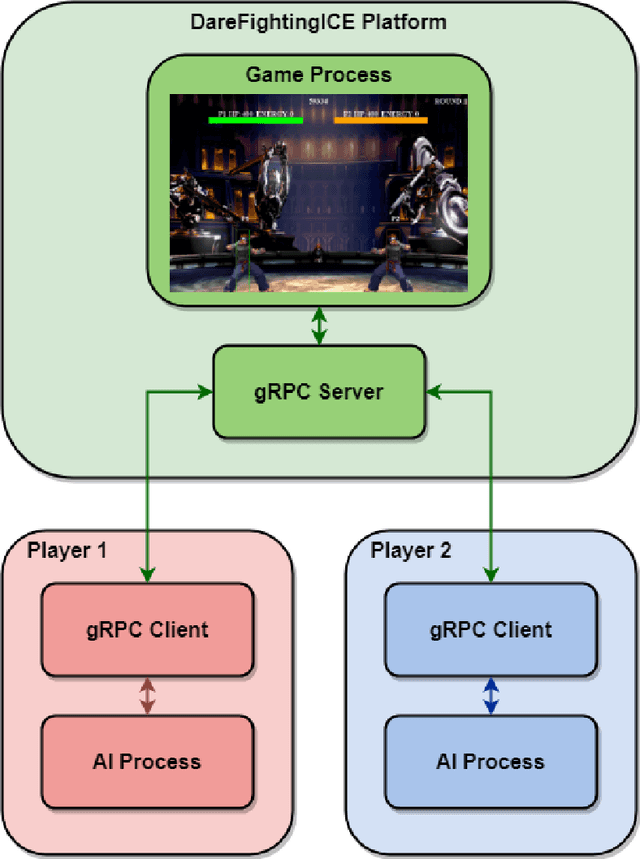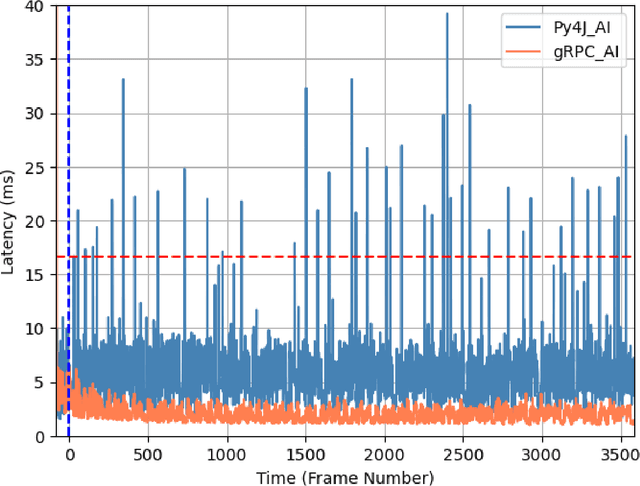Kingkarn Sookhanaphibarn
Achieving Fairness in DareFightingICE Agents Evaluation Through a Delay Mechanism
Dec 26, 2023


Abstract:This paper proposes a delay mechanism to mitigate the impact of latency differences in the gRPC framework--a high-performance, open-source universal remote procedure call (RPC) framework--between different programming languages on the performance of agents in DareFightingICE, a fighting game research platform. The study finds that gRPC latency differences between Java and Python can significantly impact real-time decision-making. Without a delay mechanism, Java-based agents outperform Python-based ones due to lower gRPC latency on the Java platform. However, with the proposed delay mechanism, both Java-based and Python-based agents exhibit similar performance, leading to a fair comparison between agents developed using different programming languages. Thus, this work underscores the crucial importance of considering gRPC latency when developing and evaluating agents in DareFightingICE, and the insights gained could potentially extend to other gRPC-based applications.
Improving Data Transfer Efficiency for AIs in the DareFightingICE using gRPC
Mar 11, 2023



Abstract:This paper presents a new communication interface for the DareFightingICE platform, a Java-based fighting game focused on implementing AI for controlling a non-player character. The interface uses an open-source remote procedure call, gRPC to improve the efficiency of data transfer between the game and the AI, reducing the time spent on receiving information from the game server. This is important because the main challenge of implementing AI in a fighting game is the need for the AI to select an action to perform within a short response time. The DareFightingICE platform has been integrated with Py4J, allowing developers to create AIs using Python. However, Py4J is less efficient at handling large amounts of data, resulting in excessive latency. In contrast, gRPC is well-suited for transmitting large amounts of data. To evaluate the effectiveness of the new communication interface, we conducted an experiment comparing the latency of gRPC and Py4J, using a rule-based AI that sends a kick command regardless of the information received from the game server. The experiment results showed not only a 65\% reduction in latency but also improved stability and eliminated missed frames compared to the current interface.
 Add to Chrome
Add to Chrome Add to Firefox
Add to Firefox Add to Edge
Add to Edge